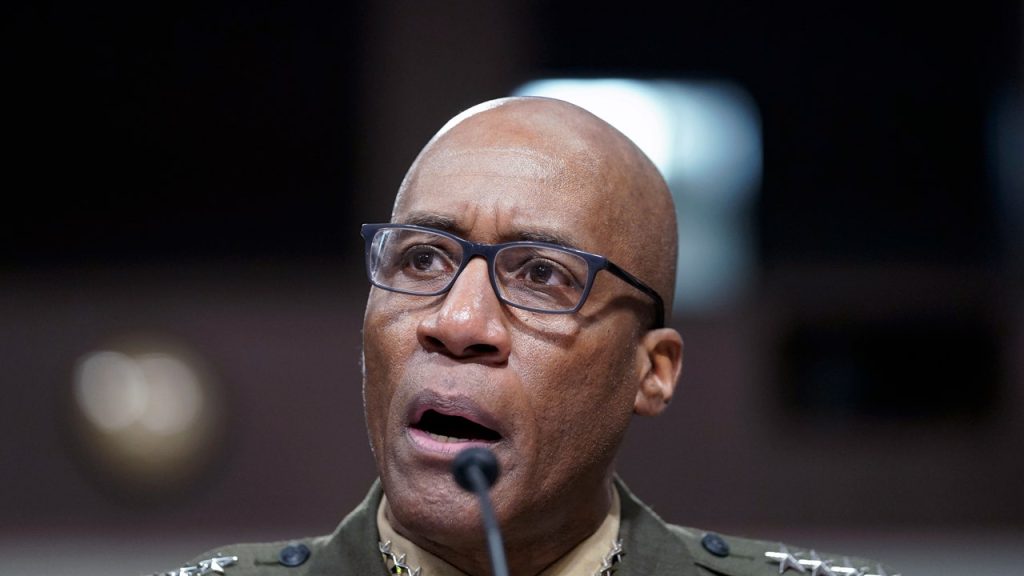The U.S. military is planning to return to Chad within a month for talks about revising an agreement that allows American troops to be based there. The decision to withdraw most of the U.S. contingent of about 100 troops from Chad was made after the government questioned the legality of their operations in the country. This move followed a similar decision made by Niger, which ordered all U.S. troops out of the country. These developments have dealt a blow to U.S. military operations in the Sahel region, where groups linked to al-Qaida and the Islamic State group operate.
U.S. Marine Corps Gen. Michael Langley, the commander of U.S. Africa Command, made the announcement to reporters in Ghana during the second annual African Maritime Forces Summit. He stated that the withdrawal of U.S. troops from Chad is expected to be temporary, as the country has communicated to Washington that it wishes to continue its security partnership after the upcoming presidential election. Langley mentioned that discussions with Chad will resume within a month to address how to further build the country’s security capabilities against terrorism.
Chad is currently gearing up for its presidential election, scheduled for Monday, and analysts anticipate that the incumbent is likely to win. The country has been through significant political turmoil, with interim President Mahamat Deby Itno taking office after his father, who had ruled for over three decades, was killed in combat in 2021. Last year, the government announced an extension of the transitional period, leading to protests across the nation. Langley emphasized that the withdrawal of U.S. forces from Chad is part of an ongoing review of security cooperation, which will resume post-election.
Both Chad and Niger have been crucial to the U.S. military’s efforts to combat violent extremist organizations in the Sahel region. The ruling junta in Niger recently ended an agreement allowing U.S. troops in the country, impacting a major U.S. air base located in Agadez, which has been utilized for surveillance flights and other operations. The U.S. has heavily invested in training Niger’s military and operations in the country since 2013. These developments pose challenges to U.S. military operations in the region and will require renegotiation of agreements to continue counterterrorism efforts effectively.
The role of the U.S. military in Chad and Niger has been significant in countering terrorism in the Sahel region, where extremist groups have been active. The upcoming discussions between the U.S. and Chad will focus on revising the agreement that allows American troops to be based in the country. The temporary withdrawal of U.S. forces from Chad is expected to be followed by a renewal of security cooperation after the presidential election, with both countries playing crucial roles in U.S. counterterrorism efforts in the region.
As the U.S. military prepares to return to Chad for talks on revising security agreements, it underscores the importance of maintaining partnerships with African nations to counter terrorism effectively. Chad and Niger have been integral to U.S. military operations in the Sahel region, and it is essential to address issues that have led to the withdrawal of American troops temporarily. The upcoming discussions will be crucial in reshaping security cooperation and ensuring that the U.S. and African nations can continue working together to combat violent extremist groups in the region.













